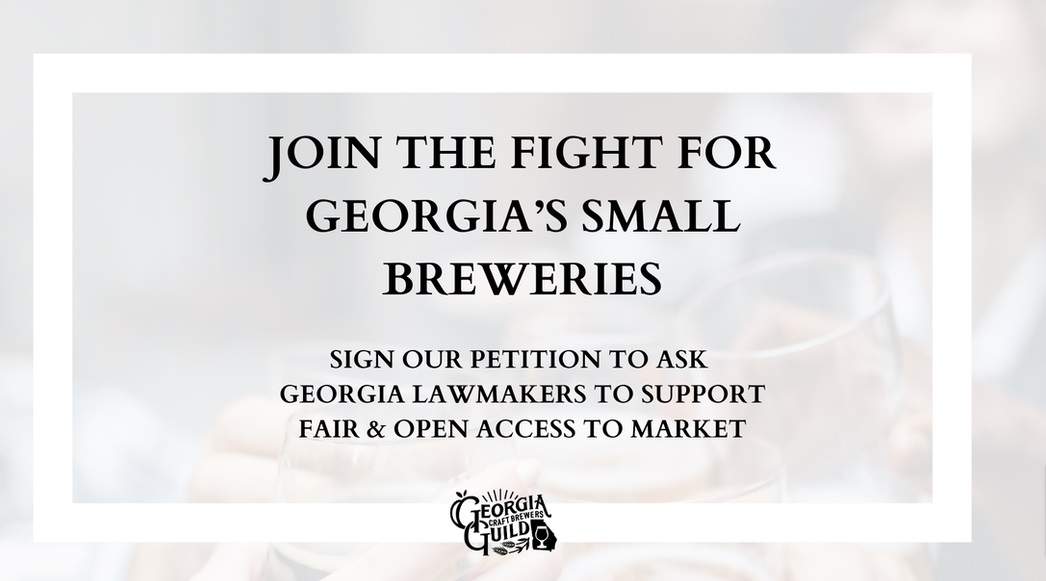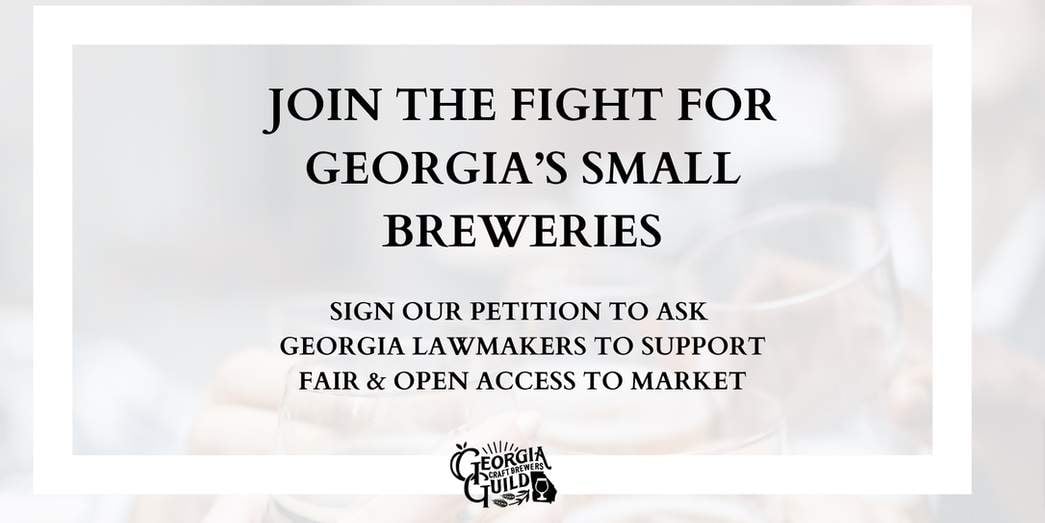
With the craft sector struggling, indie breweries need every advantage available to succeed into 2024’s ultra competitive and ultra expensive beer environment. For example: Many craft beer makers across the country are looking for more self-distribution rights and more flexible partnerships when it comes to wholesaler agreements. A specific example: Georgia Senate Bill 163 is aimed at reforming a variety of laws around selling, distributing and even giving away craft beer (the greatest gift of all). To bring attention to SB 163 — which is dubbed The F.O.A.M. Act (Fair and Open Access to Market) — the Georgia Craft Brewers Guild in partnership with the Brewers Association recently announced a petition to get the attention of both beer lovers and state lawmakers.
In 2011, there were only 21 craft breweries in Georgia, but today there are around 171 in the peach state, generating an economic impact of over $1.9 billion annually, but those numbers are shrinking. Georgia craft breweries from Second Self Beer Co. to Anderby Brewing & Distilling to Orpheus Brewing to others I just don’t feel like mentioning have permanently shut their doors over the last year. It’s a tough market everywhere for beer, and Georgian craft breweries (like breweries everywhere) need more weapons in their sales arsenal to survive.
Here’s how the Georgia Craft Brewers Guild breaks down the advantages of this piece of legislation.
2023 Fair and Open Access to Market (F.O.A.M.) Act would:
Authorize Self-Distribution:
Small brewers should have the right to sell directly to retailers. This provides desperately needed choice and competition in the marketplace, and allows brewers to build their brands in their local communities. Traditional distribution channels through wholesalers should and will remain a viable option for brewers who wish to expand in that market.
Remove the daily cap of 288 oz per person for to-go sales:
The current daily “off-premise” or “to-go” sales cap is an arbitrary limit that does not reflect consumer demands, or current business models of our small breweries. It also limits small businesses’ ability to succeed in a system where it has a narrow or no path to consumers outside their taproom.
Provides necessary reforms to current franchise law:
Under current law and regulation, small brewers are forced to maintain relationships that sometimes don’t work for anyone involved, particularly consumers and local communities. No matter what the brewer’s contract with a wholesaler might say, small brewers have virtually no ability to control who distributes their own brands, brands they’ve built and invested in. This is wrong, and should be reformed to ensure these small businesses have the necessary flexibility they need in order to serve their consumers and communities in a modern marketplace.
Support for our communities:
The F.O.A.M. Act would also allow for breweries to make charitable donations. Did you know that under current Georgia law, breweries are prohibited from donating their own product — beer — to local charities for fundraising?This bill changes that, allowing breweries to support their local communities through donation of product.
Signing below will help us encourage lawmakers to pass the FOAM Act and immediately start helping small and independent craft brewers to reach more customers, leading to growth and expansion of the entire industry.
Craft breweries have been asking for more freedom in Georgia for some time. We reported on the F.O.A.M. Act last year. A couple of years ago, an investigative report by the Georgia Public Policy Foundation found that self distribution was one of the most important and difficult hurdles to clear for the GA brewing industry. The Georgia Public Policy Foundation is a free market public policy think-tank based in Atlanta, and the organization even produced a video on the subject:
As you might imagine, Georgia wholesalers are against the bill. From a Jon Shirek article on 11 Alive (Atlanta’s WXIA TV):
But Martin Smith with the Georgia Beer Wholesalers Association said the craft brewing industry in Georgia is growing, not shrinking, and that letting them be their own distributors, even in a limited geographical area, could put wholesalers out of business.
“We’re not the big monsters; we’re small businesses across this state,” Smith told committee members. “There’s employees in every one of your districts that work for a distributor. And that’s who this affects. It is directly moving money from them and investments that they have, and to this industry (craft brewing), and it’s detrimental.”
There will be semi-convincing arguments from both sides, but we here at CBB see Senate Bill 163 heralding a new era of opportunity and growth for Georgia’s artisans of ale. With the ability to self-distribute, small breweries can forge direct connections with their customers, fostering community and spurring local economies. This legislation not only acknowledges the significant role craft breweries play in Georgia’s culture and economy but also paves the way for these businesses to thrive independently. Sign the petition right here or don’t. The choice is yours.





Leave a Reply
You must be logged in to post a comment.